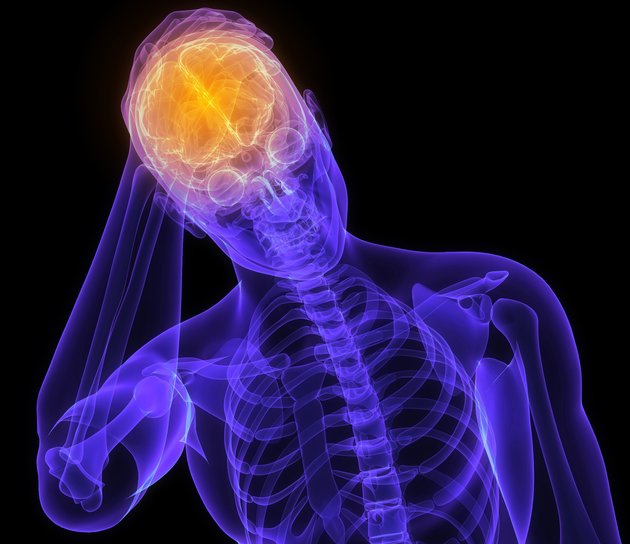
A new discovery may fundamentally alter our understanding of schizophrenia, a devastating mental illness that affects roughly 1 percent of the adult population.
Scientists at London’s Imperial College and King’s College found that schizophrenia may be caused at least in part by inflammation of the brain — which suggests that targeting neuroinflammation may be a new way to treat the disorder.
“This may provide a unique opportunity for treatment or prevention of schizophrenia, following the appropriate clinical trials,” said Dr. Peter Bloomsfield, a neuroscientist at Imperial College and the lead author of the study, which was published last week in the American Journal of Psychiatry.
The study showed that microglia, or the immune cells found in the nervous system, are more active in the brains of people with schizophrenia as well as those of people who are at risk for the disorder.
For the study, the researchers examined the brains of 56 adults using a technique known as positron emission tomography (PET) scans. Some participants had been diagnosed with schizophrenia, while others were at risk for the disorder — meaning they had mild psychotic symptoms and/or family history — and some had no symptoms and were not at risk.
The scans revealed that individuals with schizophrenia showed high levels of microglia activity in their brains, and as that microglia activity increased along with the severity of symptoms. What the activity of microglia indicates is a response to infection and damage in the brain through the process known as inflammation.
The scans revealed, moreover, that people who were at risk for schizophrenia showed higher levels of microglia activity than those who were not at risk for the disorder.

Previously, doctors had not known if these cells became active before or after the onset of the disorder.
The discovery may open up the door for an entirely new approach to schizophrenia prevention and treatment. So far, treatments have focused on changes in the neurotransmitters dopamine and serotonin. But through early testing for neuroinflammation markers, doctors may be able to treat schizophrenia before its most debilitating symptoms occur.
“With this finding… there is a new theory to explore,” Bloomfield said. “This means we can start to investigate new medication targeting microglial cells and inflammation to see if we can treat schizophrenia in established patients or prevent it in those at risk.”
The researchers still aren’t yet sure how inflammation in the brain leads to psychotic symptoms in some people, but future studies may offer some important answers.
“Schizophrenia is a potentially devastating disorder and we desperately need new treatments to help sufferers, and ultimately to prevent it,” Dr. Oliver Howes, a psychiatric imaging expert at King’s College and one of the study’s authors, said in a statement.
The study joins previous work which has linked other mental illnesses, including depression and anxiety, with inflammation in the brain.
